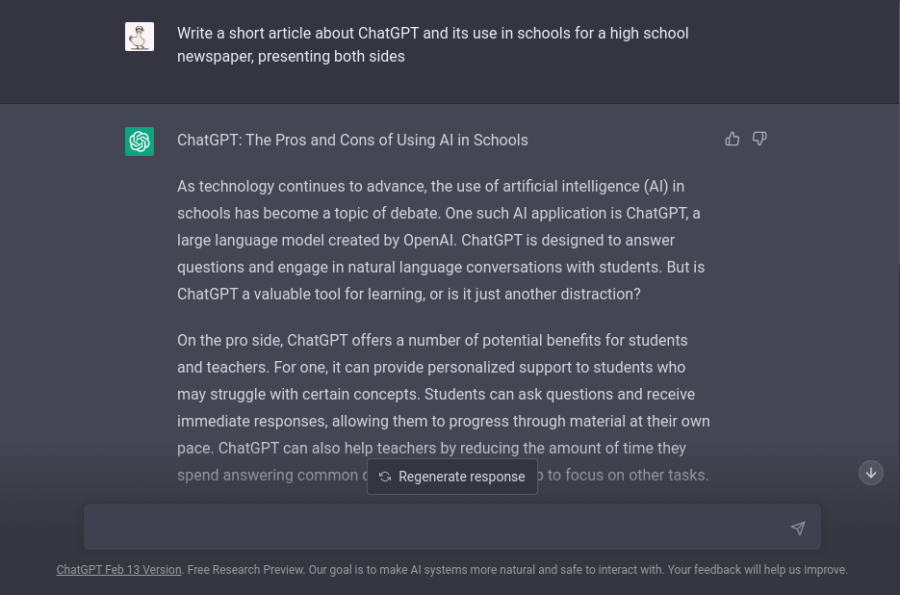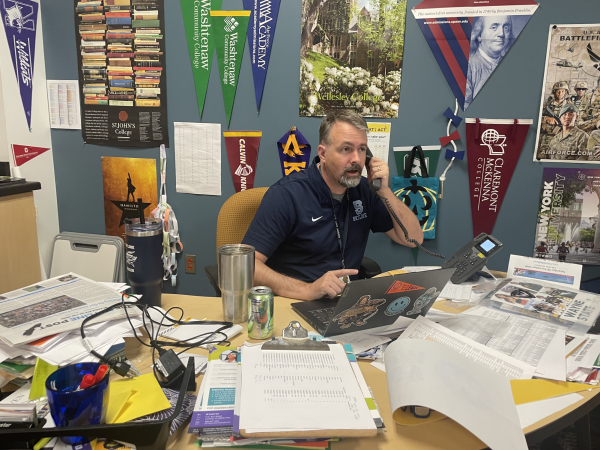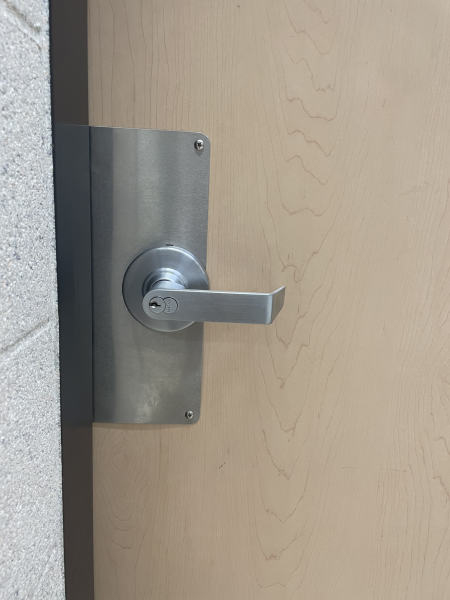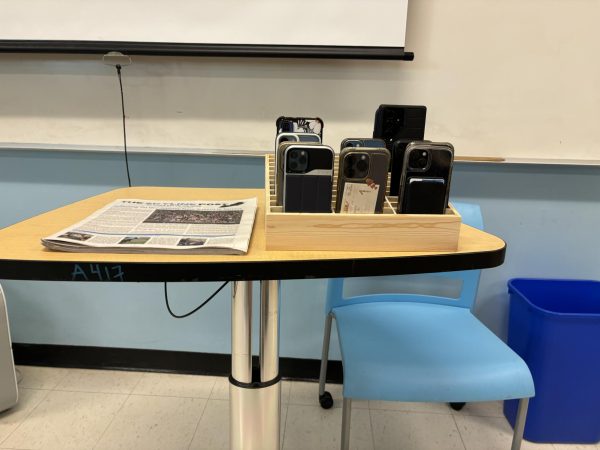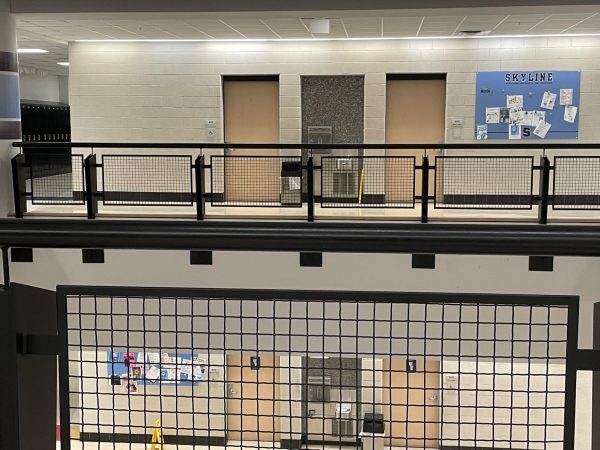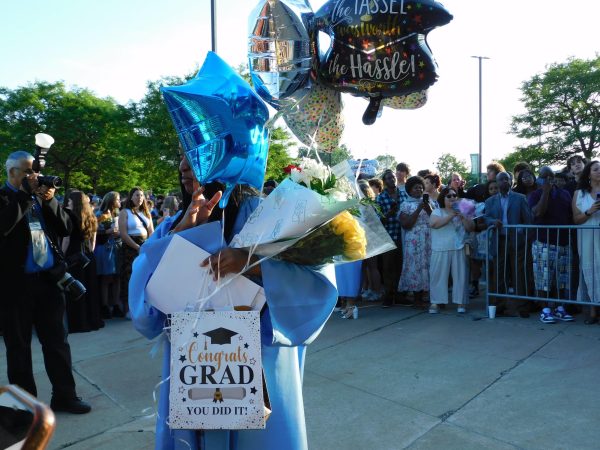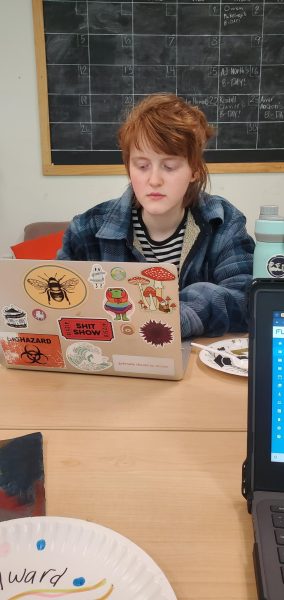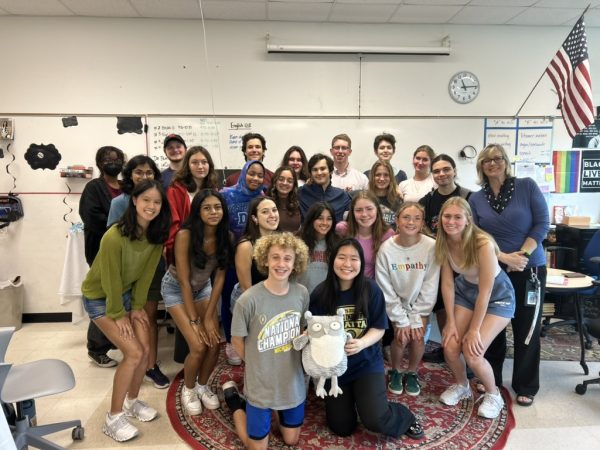AI Writing Bots and what they mean for schools
In a generation of widespread technology and unmotivated students, a new beast has arisen: ChatGPT, a website that creates answers or essays in seconds with just a prompted topic or research question.
This new tech has been intriguing students and educators alike, with one of the most prominent concerns at Skyline being the use of artificial intelligence (AI) for cheating on essays. While it’s a quick solution to writing woes, consistently relying on an automated essay could have long term repercussions.
“Writing is a process,” notes Assistant Principal Casey Elmore, “and going through the process involves revising and getting feedback. Students who use [the website] shortchange themselves in the learning process and, ultimately, aren’t prepared for writing in college.”
AI platforms are trained by the developer to recognize patterns in a given data set. Adelaide Barcalow, a Skyline student teacher from University of Michigan with a Bachelor of Science in Engineering (B.S.E.) in Computer Science, describes training an AI to write emails. “You could use all of the AAPS emails as the training data, and the AI might recognize that on Mondays it is common for people to write, ‘Hope you had a good weekend,’ so it will ‘learn’ and incorporate that when asked to draft an email.”
However, ChatGPT is not specifically designed for high school classwork, limiting its reliability. “If teachers are grading on what is discussed in the classroom, there’s no way the website will be able to know all of that,” remarks Elmore.
Here’s the question every student wants to know: will my teacher be able to decipher the difference between my written work and the website’s automated writing?
“Probably,” according to English teacher Serena Kessler. “AI written articles aren’t able to mimic a writer’s voice well; if you add in the knowledge of a students’ writing style, the difference is clear.”
Right now, the school has no intention of banning ChatGPT. “We don’t know how to monitor the site, but students would find a way to use it either way,” notes Elmore. “The most effective solution right now would be teachers checking in more throughout the writing process.” To help alleviate the struggle of knowing which essays are authentic, school administrators are encouraging teachers to produce more thorough and specific rubrics, leaving little room for general information anyone — or anything — could produce.
However, the site, when used responsibly, could prove to be more friend than foe for schools. “As teachers, we’ll have to be really flexible on how we see this as a tool,” says AP Lang teacher Serena Kessler, suggesting a future where AIs could be used to create model essays that students could edit to develop specific skills. Elmore also mentions that AI could also be used to “provide models and writing tools for students with disabilities.”
ChatGPT hasn’t reached the level of imitating humans, but students are still finding creative ways to utilize it. “It’s not all that helpful,” says an anonymous Skyline 9th grade student on using it to write essays, “but people could still cheat.”
Meanwhile, students have used it to translate difficult phrases and instructions in foreign language classes, explain concepts not gone over in class, or write emails. “It was really helpful because I asked it to write letters to my students (for academic games),” notes another anonymous 9th grader. “It crafted really polite, original emails that included everything I wanted it to, and it also made sense.”
Writing school essays is only the tip of the iceberg for AI. As AI develops, many things that we used to think required a human are now becoming automated. “It used to be that developers would have to retrain the AI, give it more data,” Barcalow says, “Now it’s self learning — your responses add to its knowledge.” AI’s have only been introduced recently, and many of the possibilities are unexplored.
Inevitably, it’s up to students to decide what they think is relevant to learn. Elmore notes, “Where there’s a will, there’s a way… there’s always another way to cheat. In the end, what are you looking to get out of your assignments?”
Your donation will support the student journalists of Skyline High School. Your contribution will allow us to cover our annual website hosting costs.
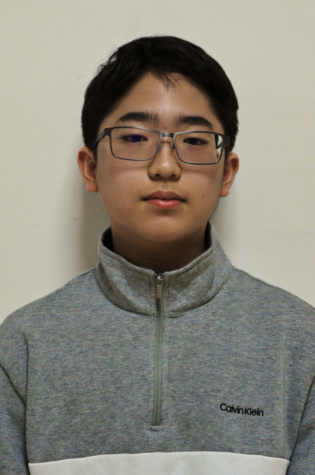
Minjoon is a freshman and a sports writer for the Skyline Post(as of now). In his free time he enjoys playing violin, listening to music, and reading.

Bella Simonte is a Editor in Chief of the Skyline Post. She enjoys getting involved in school activities, but can't wait for the year to be over.
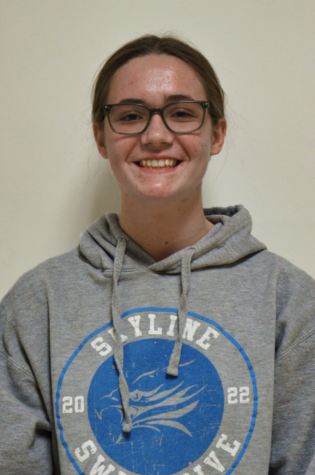
Thea is a freshman and a member of the book review at The Skyline Post. She competes for Skyline's swim team, and enjoys reading, baking, and building/engineering.

